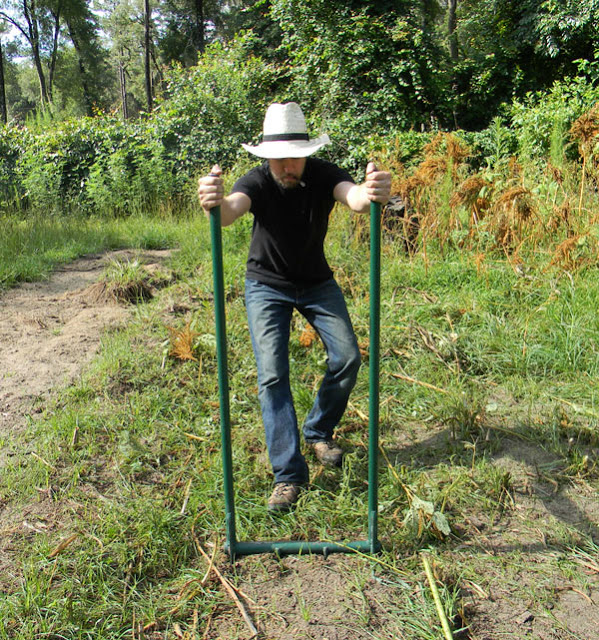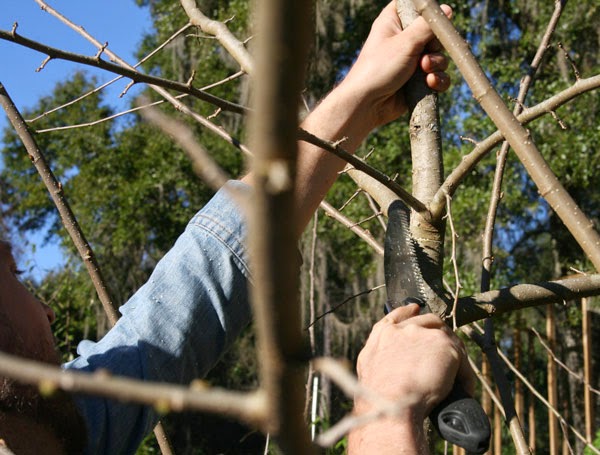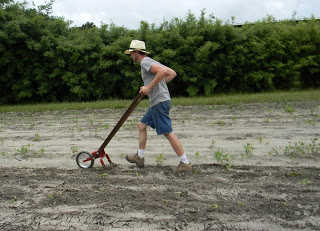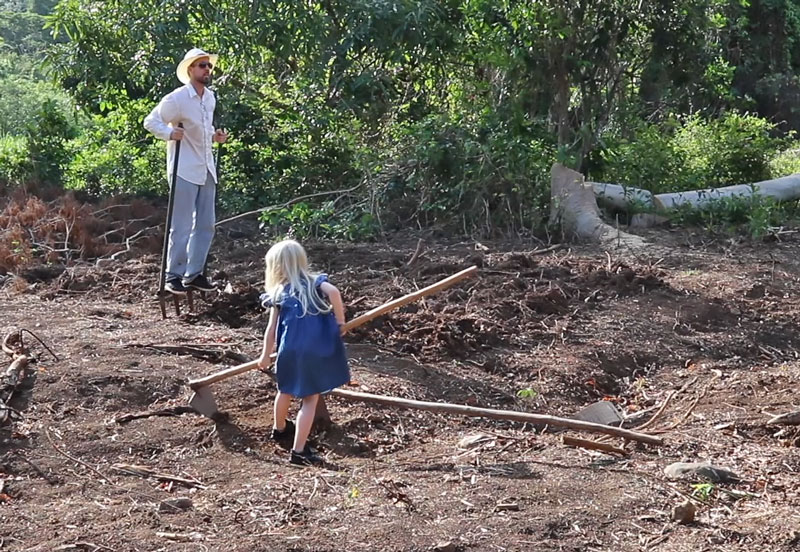Sometimes I’ll be digging or broad-forking or scything or hauling logs on video and will get a comment like, “Dude… you’re working too hard!”
“Why didn’t you use a tiller/chainsaw/tractor/truck/auger/string-trimmer?”
Though we may appreciate the labor-saving of modern machinery, it’s also good to be proficient in off-grid hand tool work. One day, we may not have diesel. Or electricity. Or a working tiller.

On that day, wouldn’t it be good to still be fit and well-versed in man-powered gardening work?

Working hard is also good for you. Though you may enjoy going to the gym, you can also enjoy working your muscles by doing something productive, whether it’s chopping down a tree with an axe or chasing goats into an enclosure.

We’re all entirely too lazy. Just as we can’t imagine life without a smartphone, because it’s “so inconvenient,” we can’t imagine working a large garden by hand.

Not to say it’s always wrong to embrace short-cuts. When we first moved in here, we had a friend till under our new garden area with a tractor-powered tiller. That got us a fast start on our Grocery Row Gardens.
There are times to use what you have. But on the other hand, working hard is good for the body and the soul.

If you’re not in shape, gardening is a good way to get there.
You’ll feel better and sleep better after working hard. Plus, you get to look at your finished work with the pleasure of knowing your body got you there.


5 comments
A Saturday afternoon clearing the weeds out of my front bed made my Fitbit happy for a week, so yeah, there’s something to be said for the fat-burning potential of hand tools. Can’t wait to see what it makes of me digging up hedges.
I bet you break it digging up hedges! It won’t know what to do.
Nice article David. I agree with all you said and would further add that we should also take into account what really is involved with the use of “a tiller/chainsaw/tractor/truck/auger/string-trimmer. Lets say you had gone out and bought all of these things .. that would run you many hundreds or even thousands of dollars. To earn all of that money would require also a lot of hard work and labor with a good chunk of it skimmed off the top by gov. taxes. In addition, what is the environmental impact of mining, smelting and manufacturing all of the metal and plastic components that go into making those “labor saving” tools”?.
I am reminded of a passage from Thoreau’s “Walden”:
“One says to me, “I wonder that you do not lay up money; you love to travel; you might take the cars and go to Fitchburg today and see the country.” But I am wiser than that. I have learned that the swiftest traveller is he that goes afoot. I say to my friend, Suppose we try who will get there first. The distance is thirty miles; the fare ninety cents. That is almost a day’s wages. I remember when wages were sixty cents a day for laborers on this very road. Well, I start now on foot, and get there before night; I have travelled at that rate by the week together. You will in the meanwhile have earned your fare, and arrive there some time tomorrow, or possibly this evening, if you are lucky enough to get a job in season. Instead of going to Fitchburg, you will be working here the greater part of the day. And so, if the railroad reached round the world, I think that I should keep ahead of you.”
Very good thoughts – you are right.
Right on. Mechanical tools are useful if you have a big project that needs to happen quickly, or have just landed on a new property and need to get things up to speed. But for long-term habits and daily routines, it’s ideal to have a system that you can manage with manpower alone, with the assistance of some basic tools that don’t require fossil fuels or moving parts that are hard to repair. The security of knowing your food source won’t fail if the power goes out or gas becomes unaffordable or you can’t find a repairman, is worth the inconvenience, and in any case you usually feel better physically, emotionally, and spiritually, after an honest day’s work with your hands.
Comments are closed.